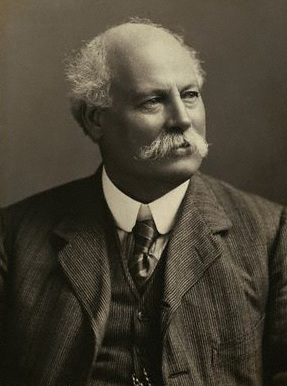
Leicester Square is a pedestrianised square in the West End of London, England. It was laid out in 1670 as Leicester Fields, which was named after the recently built Leicester House, itself named after Robert Sidney, 2nd Earl of Leicester. The square was originally a gentrified residential area, with tenants including Frederick, Prince of Wales and the artists William Hogarth and Joshua Reynolds. It became more down-market in the late 18th century as Leicester House was demolished and retail developments took place, becoming a centre for entertainment. Major theatres were built in the 19th century, which were converted to cinemas towards the middle of the next. Leicester Square is the location of nationally significant cinemas such as the Odeon Luxe Leicester Square and Empire, Leicester Square, which are often used for film premieres. The nearby Prince Charles Cinema is known for its screenings of cult films and marathon film runs. The square remains a tourist attraction which hosts events, including for the Chinese New Year.

Sir William Hamo Thornycroft was an English sculptor, responsible for some of London's best-known statues, including the statue of Oliver Cromwell outside the Palace of Westminster. He was a keen student of classical sculpture and was one of the youngest artists to be elected to the Royal Academy, in 1882, the same year the bronze cast of Teucer was purchased for the British nation under the auspices of the Chantrey Bequest.

William Calder Marshall ARSA was a Scottish sculptor.

Sir Thomas Brock was an English sculptor and medallist, notable for the creation of several large public sculptures and monuments in Britain and abroad in the late nineteenth and early twentieth centuries. His most famous work is the Victoria Memorial in front of Buckingham Palace, London. Other commissions included the redesign of the effigy of Queen Victoria on British coinage, the massive bronze equestrian statue of Edward, the Black Prince, in City Square, Leeds and the completion of the statue of Prince Albert on the Albert Memorial.

John Henry Foley, often referred to as J. H. Foley, was an Irish sculptor, working in London. He is best known for his statues of Daniel O'Connell for the O'Connell Monument in Dublin, and of Prince Albert for the Albert Memorial in London and for a number of works in India.

William Shakespeare has been commemorated in a number of different statues and memorials around the world, notably his funerary monument in Stratford-upon-Avon ; a statue in Poets' Corner in Westminster Abbey, London, designed by William Kent and executed by Peter Scheemakers (1740); and a statue in New York's Central Park by John Quincy Adams Ward (1872).
Angela Conner FRSS is an English sculptor who works in London. Conner has exhibited internationally and has large scale sculptures in public and private collections around the world.

A statue of William Shakespeare, by the sculptor Giovanni Fontana after an original by Peter Scheemakers, has formed the centrepiece of Leicester Square Gardens in London since 1874.

A statue of Henry Irving stands near the entrance of the National Portrait Gallery in London. It was unveiled on 5 December 1910, having been funded by English actors and actresses and others related to British theatre in a campaign organised by the Irving Memorial Committee. It was installed on land donated by the City of Westminster. The Irving Society hosts a wreath-laying ceremony at the statue on 6 February each year, commemorating the actor's birth. The bronze statue, on a Portland stone pedestal, is by the sculptor Thomas Brock and is listed at Grade II.

The statue of Benjamin Disraeli is an outdoor bronze sculpture by Mario Raggi, located at the west side of Parliament Square in London. It was unveiled in 1883 and became a Grade II listed building in 1970.

A 1965 memorial bust of John F. Kennedy by Jacques Lipchitz stands in the lobby of International Students House on Great Portland Street in London, England, and is visible from the outside through the glass doors. It was moved there in April 2019 from its original location on the Marylebone Road, to the west of Great Portland Street underground station, after it was vandalised in 2017.

Scenes in the Square is a film-themed sculpture trail in Leicester Square, London. Eight sculptures were installed in February 2020. These sculptures depict characters from the last 100 years of cinema including Laurel and Hardy, Mary Poppins, Batman, Bugs Bunny, Don Lockwood portrayed by Gene Kelly, Paddington Bear, Mr. Bean, and Wonder Woman. A sculpture of Harry Potter was installed later on in 2020 and then in 2021, a sculpture of the Iron Throne from Game of Thrones was added.
Edward Davis MIBS was a 19th century British sculptor.
















